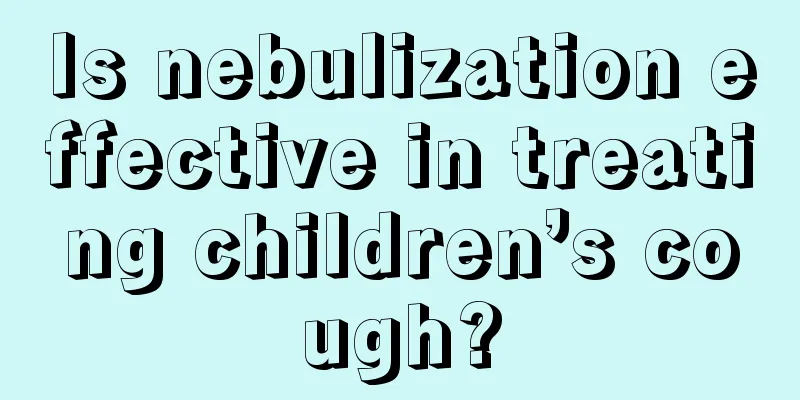Eight-month-old baby has a bad mouth

|
Eight-month-old babies are mainly fed with milk powder or red rice porridge on a daily basis. Parents will occasionally feed them a little bit of fruit puree or meat puree. In most people's definitions, some adult problems will not occur in children. However, recently many mothers have found that their babies have bad breath, and it is particularly obvious. In this case, we must check whether it is because they did not drink more water in time after eating, have oral or gastrointestinal inflammation, or problems with the digestive system, which are all factors that cause bad breath. Causes and classification 1. Causes (1) Improper feeding causes gastrointestinal dysfunction. (2) Gastrointestinal inflammation: Infants and young children eat food contaminated by bacteria, which causes gastrointestinal inflammation. (3) The misuse of antibiotics causes an imbalance in the gastrointestinal flora, in which normal bacteria, such as Lactobacillus, are inhibited while miscellaneous bacteria grow and multiply in large numbers. (4) When the weather turns cold, the body’s resistance is low and catching a cold can cause indigestion. 2. Classification (1) Sour taste is the most common type of bad breath in children, and is often seen in babies with gastrointestinal dysfunction. In addition, rotten egg smell in children's mouth often indicates indigestion and liver disease. Putrid odor is mostly caused by oral inflammation and poor oral hygiene habits. (2) The smell of rotten apple is a sign of ketoacidosis. Purulent bad breath is mostly caused by ulcers, erosions, and suppuration in the lesions of diseases such as foreign bodies in the baby's nasal cavity, atrophic rhinitis, sinusitis, purulent tonsillitis, lung abscess, and bronchiectasis. If there is a bloody smell in the child's mouth, it is usually caused by bleeding diseases such as nosebleeds and gastrointestinal bleeding. Clinical manifestations The most common bad breath in children is usually caused by indigestion, which can be divided into simple indigestion and toxic indigestion. Common symptoms of simple indigestion are diarrhea less than 10 times a day, yellow or green stools with little water, abdominal bloating, occasional vomiting, and sometimes fever but not too high. The child has a poor appetite but is in good spirits. Foul-smelling stools and refusal to eat are also clinical manifestations of bad breath in children. If a child occasionally has a loss of appetite, refuses to eat, or the food does not taste good, do not force him to eat, but let him eat less. |
<<: What to eat for eight-month-old baby with zinc deficiency
>>: What to do if your eight-month-old baby has flat blood
Recommend
What should I do if my child gets itchy and scratches the pimples?
Itching on the body is a very common phenomenon, ...
What should I do if my child has a cold and fever repeatedly?
Some children have caught a cold and had a fever....
What is the diet schedule for nine-month-old babies?
As we all know, the most important person in ever...
Newborn baby crying
I believe many people have had this experience, t...
What should I do if my child keeps having a dry cough?
After a child is born, as he or she grows older, ...
The best time to correct children's x-legs
If you find that your child has X-legs, you must ...
Boys' developmental characteristics and manifestations
We boys will all go through puberty, and we need ...
What should I do if my child has intellectual disabilities?
Children's intellectual disabilities can actu...
Warts on children's hands
Warts are a contagious disease and can occur in a...
Things to note after the red and blue light treatment
Jaundice is a disease symptom that newborns often...
The dangers of laser surgery for myopia in children, be careful when wearing glasses for children
Many parents do not want their children to become...
How to solve the problem of baby stuttering?
Many children start to stutter when they are arou...
Why does a child have a fever and cold hands and feet?
We will encounter many situations when taking car...
How to treat black teeth in a 1-year-old baby
Many babies have black teeth, which seriously aff...
What to do if your baby has cough and tracheitis
Because babies have weak constitutions, if they a...









